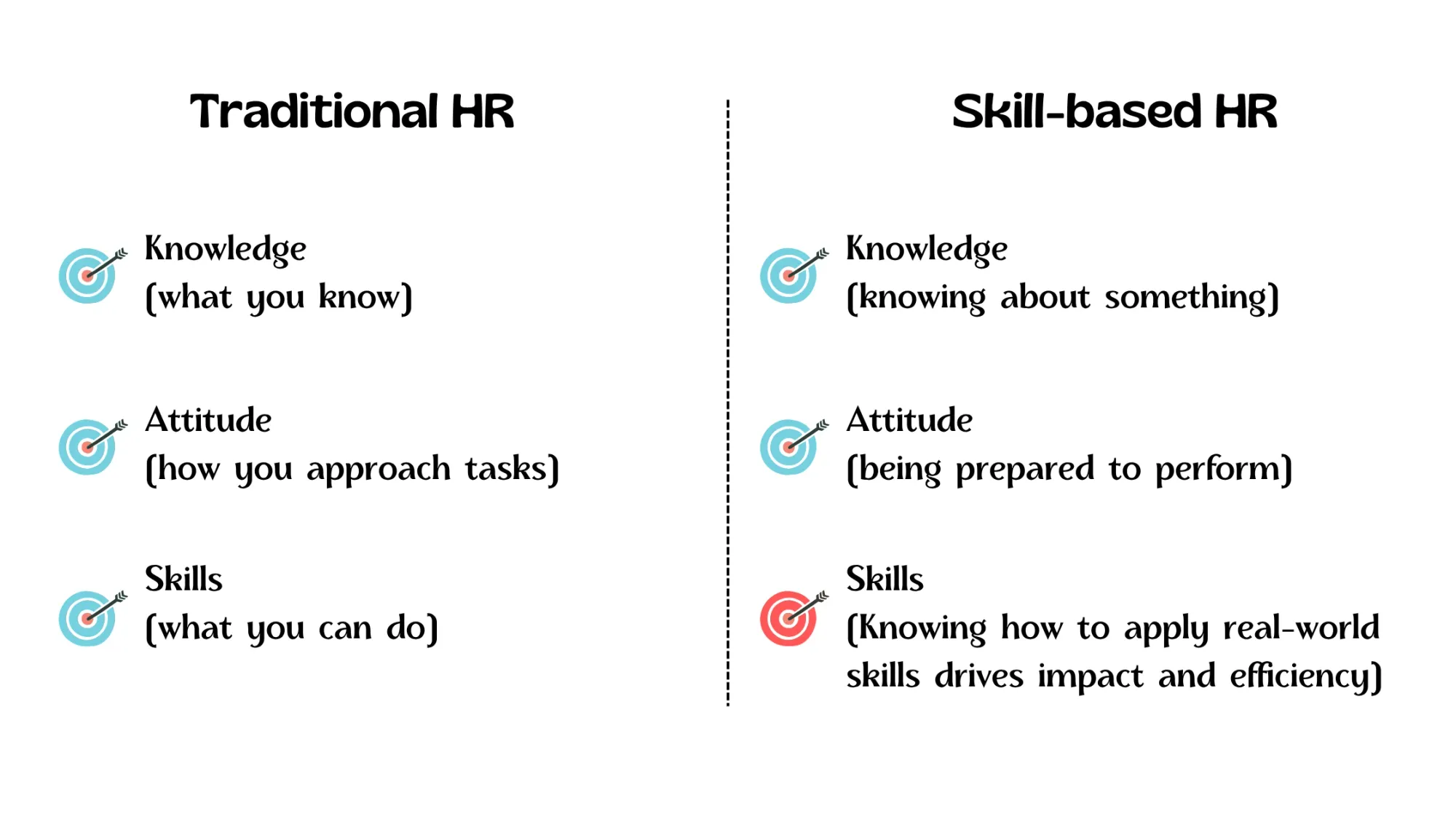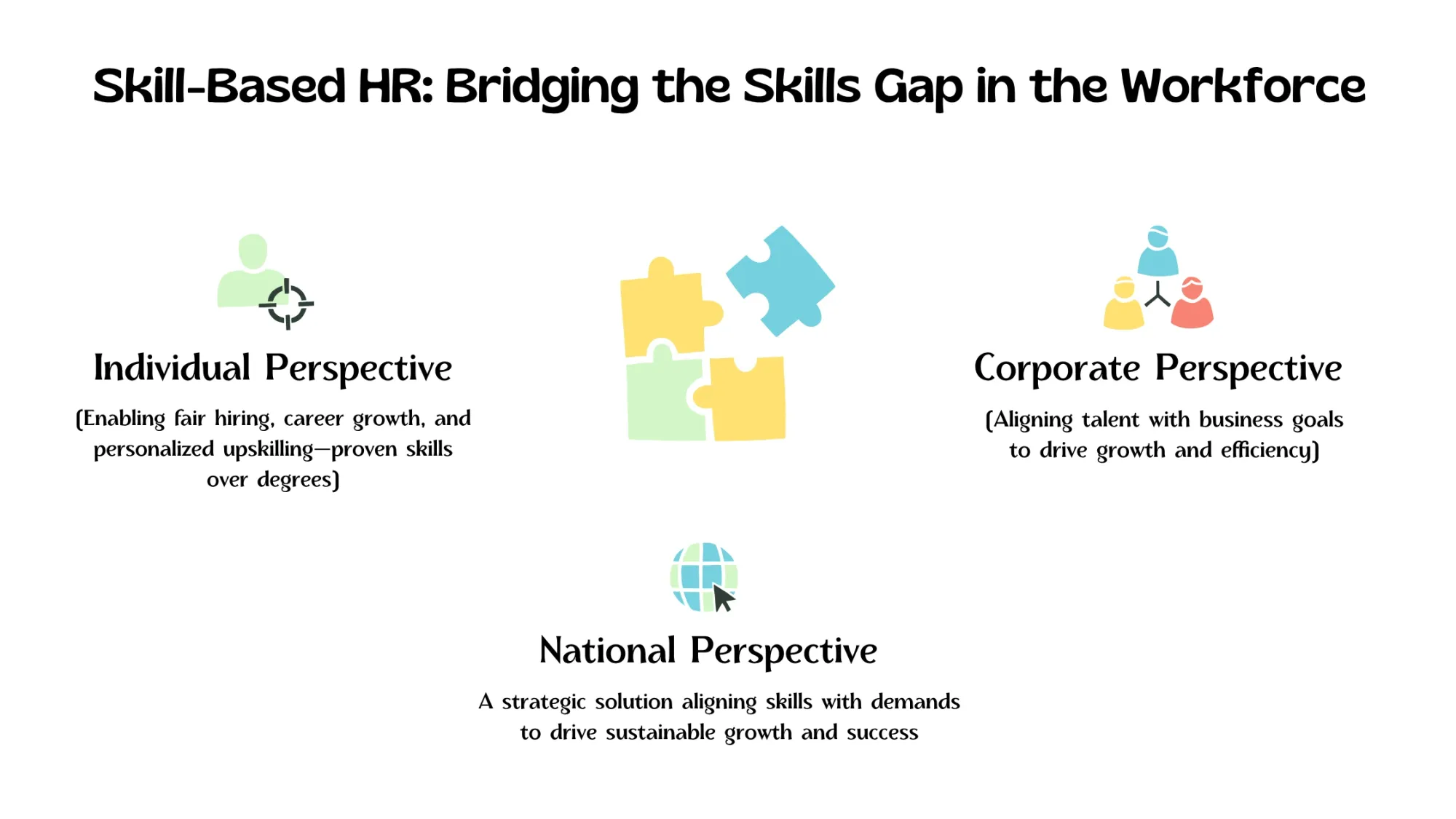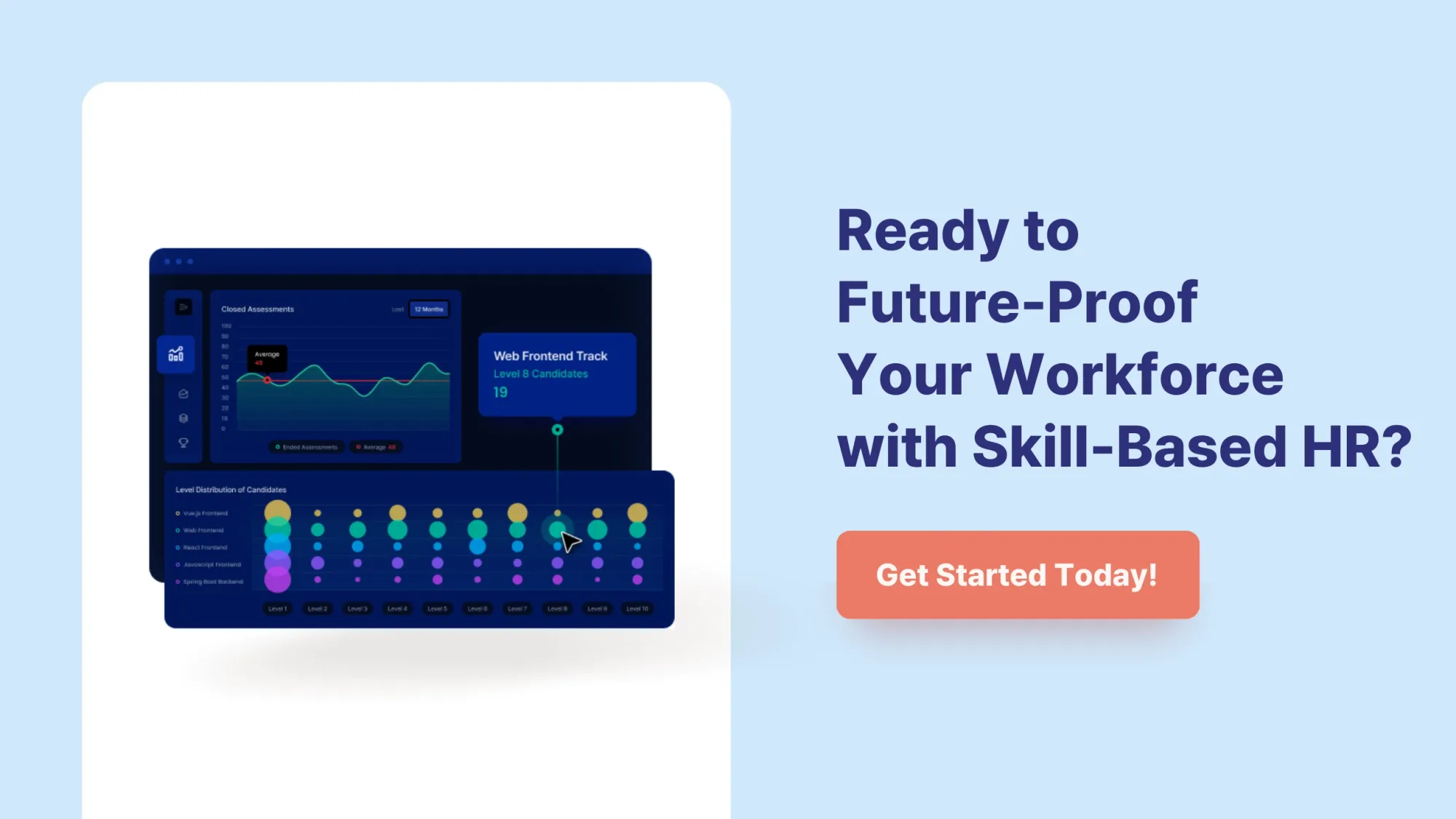Skill-Based HR: The Future of Talent Acquisition and Developer Retention

1. Introduction
In today’s fiercely competitive talent market, top-tier professionals seek more than just attractive salaries—they are drawn to environments where their skills are recognized, nurtured, and continuously developed. For companies aiming to attract and retain top developer talent, it is essential to implement a strategic HR system that enhances role alignment and individual skill development. In this evolving landscape, Skill-Based HR is emerging as a critical framework to optimize talent acquisition, retention, and growth.
This article explores the value Skill-Based HR brings to organizations and provides insights into effectively implementing it—from developer competency assessment to developer retention. We will also introduce how Codepresso, as an IT recruitment solution, supports companies in adopting a skill-driven HR approach.
Table of Content
- Introduction
- What is Skill-Based HR?
- Talent Acquisition Through Skill-Based HR: A Key to Sustainable Growth
- The Challenge of Skills Mismatch: Real-World Implications
- Why Skill-Based HR Matters?
- Enabling Skill-Based HR with Codepresso
2. What is Skill-Based HR?
Skill-Based HR is a focused HR strategy that emphasizes technical competencies within the broader scope of job capabilities. While traditional job competencies often include knowledge, skills, and attitude, Skill-Based HR prioritizes the practical application of technical skills.
This approach evolves beyond theoretical knowledge—what a candidate "knows"—to emphasize what they can do in real-world scenarios. For instance, understanding the Java programming language reflects knowledge, while being able to build and deploy RESTful APIs using Spring Boot exemplifies applied skill. Skill-Based HR evaluates whether a candidate can deliver results from day one in a project-based setting.
This shift also underscores the importance of training that develops actual capabilities, not just theoretical understanding. Realizing true skill-based HR means moving beyond knowledge-centric hiring and evaluation to a framework grounded in demonstrable abilities.

3. Talent Acquisition Through Skill-Based HR: A Key to Sustainable Growth
Skill-Based HR is not merely a hiring trend; it is a strategic imperative for businesses navigating rapid technological and market changes. As demand for new skills grows, Skill-Based HR helps ensure the right people are placed in the right roles at the right time.
In the knowledge-based economy, human capital is the most vital asset. The competitive edge of a company depends largely on how effectively it secures and retains talent with the required job competencies. This calls for HR teams to precisely analyze role-specific skill demands and either recruit externally or train internally to close gaps.
For example, an IT company planning to expand cloud-based services must evaluate existing employees' cloud competencies and either hire AWS or Azure specialists or upskill internal teams accordingly. This isn’t just recruiting—it’s strategic skill acquisition aligned with long-term business goals.
One growing challenge in the labor market is skill mismatch—a disconnect between the skills employers need and those candidates offer. This misalignment affects productivity and economic performance. Therefore, IT hiring solutions such as online coding tests and automated technical interviews are valuable tools in addressing this gap.
4. The Challenge of Skills Mismatch: Real-World Implications
In 2020, the International Labour Organization (ILO) published an article titled What is Skills Mismatch and Why Should We Care?, highlighting this global challenge. According to the ILO, skills mismatch arises from misalignment between the supply and demand of skills in the labor market, manifesting in various ways:
- Shortage of highly skilled professionals due to rapid technological advancement (e.g., a lack of AI/ML engineers)
- Oversupply of certain skilled professionals, leading to underemployment and wage suppression
- Overeducated individuals lacking key technical skills, often due to discrepancies between academic training and job requirements
Such mismatches complicate developer evaluation, lead to inefficient talent placement, and can ultimately reduce organizational productivity.
5. Why Skill-Based HR Matters
Without a skill-based HR system, skill mismatches can lead to problems at every level—individual, organizational, and national.

- Individuals may face job dissatisfaction or underemployment despite academic achievements if their practical skills don’t align with job market needs. This can impact career satisfaction and contribute to developer retention issues.
- Organizations risk declining competitiveness and innovation due to underutilized human capital. This may also result in high employee turnover. Adopting Skill-Based HR becomes essential for streamlining IT recruitment and enhancing workforce efficiency.
- Governments may see increased unemployment and reduced foreign investment as skill mismatches undermine workforce readiness and economic growth. Moreover, if education and training do not yield employment returns, public and private investment in these areas may decline, weakening national competitiveness.
Addressing these challenges calls for a structured, skill-based approach to developer assessment and HR management.
6. Enabling Skill-Based HR with Codepresso
Looking for a practical solution to implement Skill-Based HR and close the skill gap?
Codepresso offers a comprehensive online coding test platform tailored to specific IT roles and proficiency levels. By assessing candidates’ practical capabilities, Codepresso helps businesses minimize skill mismatches and accurately match talent to job requirements.
With detailed candidate reports, HR teams can easily visualize each applicant’s technical strengths, making developer evaluation more efficient and precise. Whether you are exploring developer hiring platforms or seeking to implement Skill-Based HR, Codepresso provides the tools and insights needed to make informed, strategic decisions.

#Codepresso #SkillbasedHR #onlinecodingtest #HR strategy #HRtrend

Aurora Jieun Song, Ph.D.
As a professional in Human Resource Development (Happy HRD), she specializes in connecting theory and practice, and fostering growth and happiness among individuals. Over the past 15 years, she has been responsible for developing experts and cultivating organizational culture in an IT company. She holds both a Master's and a Ph.D. from Sogang University's Graduate School of Education and Seoul National University's Department of Industrial and Organizational Development. Additionally, she is a certified Professional in Human Resources (PHR) and a coach affiliated with the Korea Coaching Association. Currently, she supports leadership development and organizational growth at a global pharmaceutical holding company and assists in the professional development of HR practitioners at Sogang University's Graduate School of Education.



Comments ()